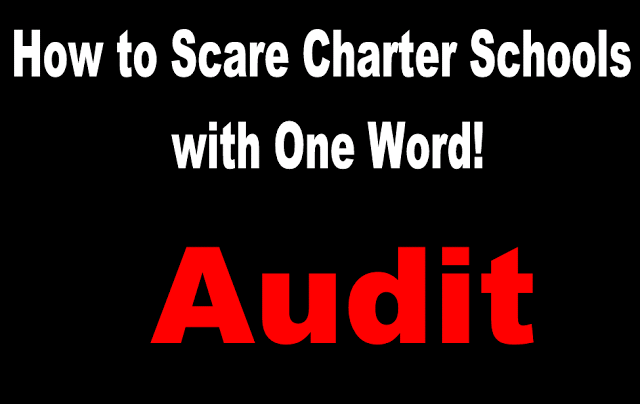Municipal Bond Analysts Seek Greater Transparency from Charter Schools


We are well aware that charter schools open and close, sometimes for academic reasons, sometimes for financial reasons. Unfortunately, some of these schools are financed with municipal bonds, which makes them a risky endeavor. The story below is behind a pay wall. I subscribed to The Bond Buyer so I could read it in full. It shows why the NAACP and other organizations are calling for charter school accountability and transparency. It is not good for either municipal finance or for children to have schools that close in the middle of the year without warning.
Racently, the National Federation of Municipal Analysts urged charter schools “to provide detailed financial, academic, and staffing information in primary and secondary disclosure documents.” This is the first time that the NFMA has made disclosure recommendations for charter schools.
“The charter school sector has been very active in the last … four to five years [and] it traditionally has not had a lot of public rating coverage,” said Gilbert Southwell, vice president at Wells Capital Management and co-chair of the NFMA disclosure subcommittee that drafted the paper. “[The RBP] is both educational for our membership but also helps to establish our disclosure expectations when we’re looking at these deals.”
Dean Lewallen, vice president and senior analyst at AllianceBernstein L.P. and co-chair of the subcommittee with Southwell, said the RBP is the product of a year-long vetting process with a variety of market participants and thus reflects “an industry consensus.”
The document’s recommendations begin with key information that should be included in a primary offering statement (POS). According to the RBP, a charter school’s POS should disclose all material financial agreements, including the proposed indenture, loan agreement, capital leases, management agreements, and tax regulatory agreements. It should also include information from twelve other broader topics, like descriptions of facilities and their financing, pledged revenues, and projected cash flows. NFMA also wants descriptions of debt service, repair and replacement, operating and deficit, as well as insurance and property tax reserve funds.
The RBP lists disclosures in a successful charter school POS related to academic performance as well as school management and operations.
“A charter school’s academic performance has been identified as an especially important factor in charter school long-term stability and success,” NFMA said in its RBP. “Consequently, the POS should disclose all relevant aspects of the charter school academic performance.”
Such disclosures should include information covering regulatory authorities that have jurisdiction over the charter school, along with the school’s curriculum and education programs at varying grade levels and how those programs satisfy applicable educational standards, the RBP says. Information on how the school tests students to measure academic growth as well as how recent school data stacks up against historic measurements should be presented in an easily accessible way for investors, NFMA said.
In terms of school staff and management, an effective POS should provide detailed information in eight key areas, according to NFMA, including: charter board membership, compensation, and tenure; information available on the school’s website; management qualification, experience, and compensation; third-party manager control, compensation, and replacement; and charter school teaching faculty, classroom ratios, and teachers’ union affiliation. Additionally, the POS should have information regarding teacher and staff compensation, including retirement benefits, any complaints and claims the school is facing, as well as operating and funding information related to extracurricular activities.
Another important area for disclosure has to do with the school’s facilities, NFMA said. A POS should contain information about the size, Municipal Bond Analysts Seek Greater Transparency from Charter Schools | Diane Ravitch's blog:


